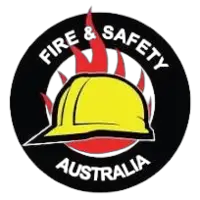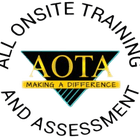
This role has a low level of AI exposure. Core skills such as adaptability, social intelligence, and complex physical tasks remain beyond the capabilities of current AI.
Explore all careersA Welder joins metal parts using heat, creating new items or repairing structures, requiring strong skills, attention to detail, and teamwork.
Get qualified to work as a Welder with a course recognised across Australia. Speak to a training provider to learn more.



















In Australia, a full time Welder generally earns $1,400 per week ($72,800 annual salary) before tax. This is a median figure for full-time employees and should be considered a guide only. As you gain more experience you can expect a potentially higher salary than people who are new to the industry.
 Courses.com.au Team
Courses.com.au Team
The number of people employed in this industry has fallen slightly in recent years. There are currently 69,600 people working as a Welder in Australia compared to 75,800 five years ago. Welders may find work across all regions of Australia.
Source: Australian Government Labour Market Insights
 Courses.com.au Team
Courses.com.au Team
To become a Welder, consider the Certificate II in Engineering – Production Technology. You’ll learn about different types of welding including oxy, metal arc and tungsten arc, as well as soldering, metal fabrication and cutting techniques. You could also enrol in a Certificate III in Engineering – Fabrication Trade, a Certificate III in Engineering – Mechanical Trade, a Certificate IV in Engineering or a Certificate IV in Engineering (Welding).
 Courses.com.au Team
Courses.com.au Team
Browse occupations related to Welder



The Blue Mountains offers a unique opportunity for those interested in pursuing a career in welding through comprehensive Welder courses in Blue Mountains. With its stunning natural backdrop and a strong local industry, students can benefit from high-quality training that not only prepares them for the everyday demands of welding but also connects them to supportive communities and networks in the trades sector. Investing in welding training in this picturesque region can pave the way for a fulfilling and rewarding career.
Training to become a welder engages students in various essential skills, from metal fabrication techniques to familiarising themselves with industry-standard equipment. Those who complete their Welder courses in Blue Mountains may find themselves exploring various job roles in the field, such as an Apprentice Engineer or an Engineering Tradesperson. With a mix of theoretical knowledge and hands-on practice, graduates can build a robust skill set that will serve them well in the ever-evolving profession of welding.
As students delve deeper into the world of welding, they may also uncover interests in related fields. For instance, they may consider specialising as a Blacksmith or pursuing opportunities as a Boilermaker. These exciting career pathways, alongside positions such as a TIG Welder or Metal Worker, highlight the versatility of the welding profession and the potential for personal and professional growth.
In the Blue Mountains, students can benefit from proximity to varied industries that require skilled welders and fabricators, such as construction and manufacturing. By enrolling in Welder courses in Blue Mountains, students not only enhance their skills but also expand their networks, connecting with other passionate individuals and industry leaders. After training, many graduates find opportunities as a Welding Instructor or a Sheet Metal Worker, showcasing the myriad of possibilities within the welding landscape.
The choice to start a career in welding can be life-changing, especially in such a vibrant area like the Blue Mountains. Whether your goal is to become a skilled Fabricator, a Brake Press Operator, or to explore other welding-related roles, the right training is crucial to your success. With high-quality Welder courses in Blue Mountains, aspiring professionals can confidently take their first steps into a rewarding career that opens countless doors in the exciting world of trades and metalworking.